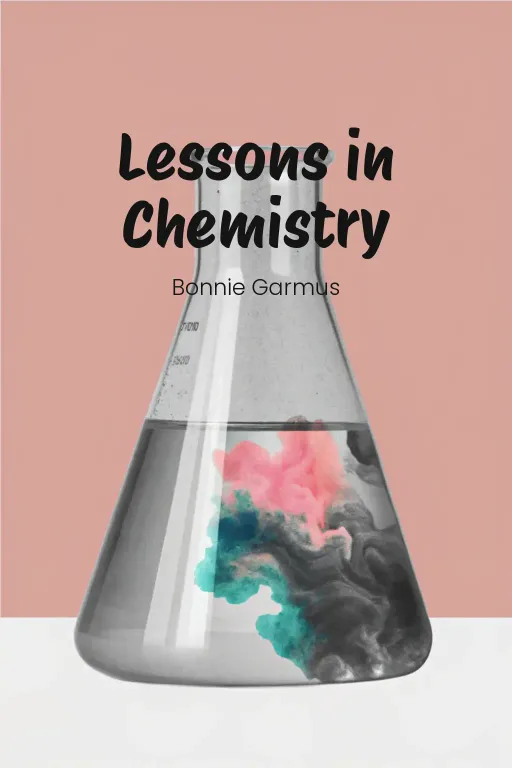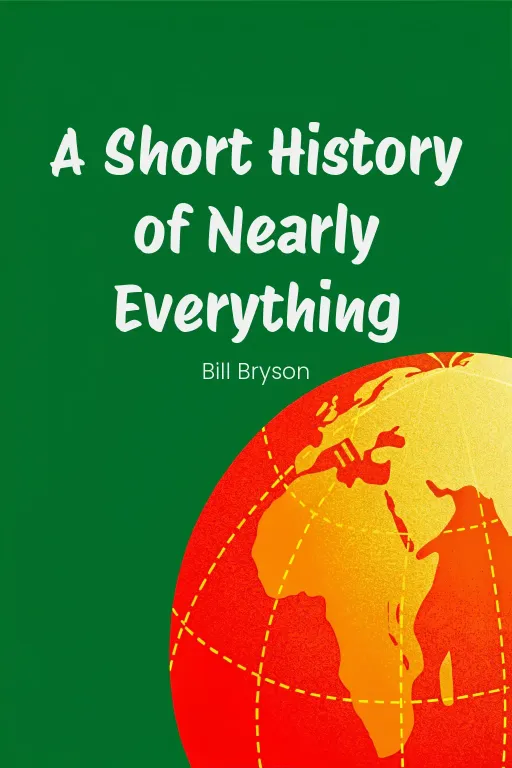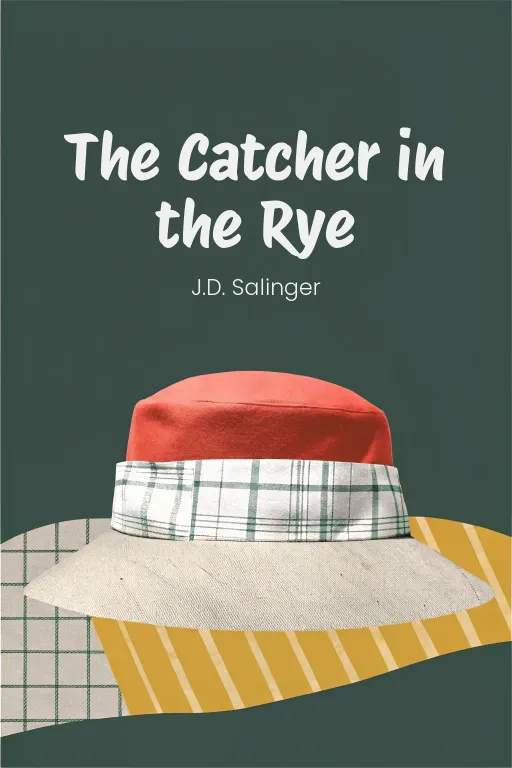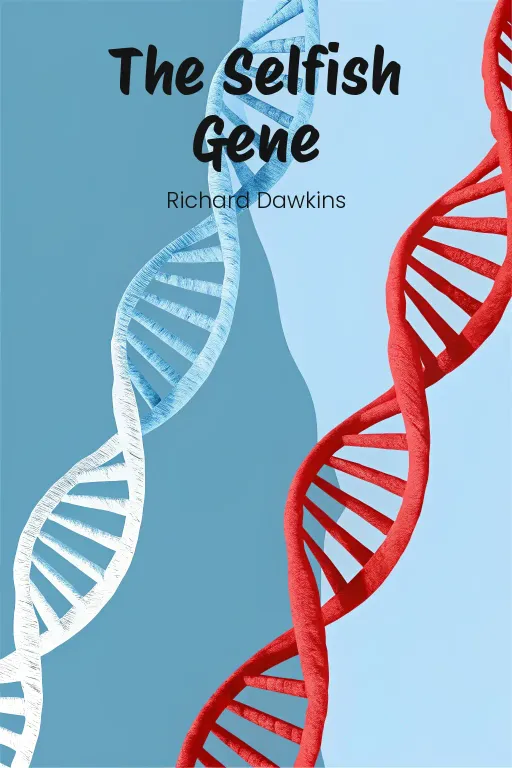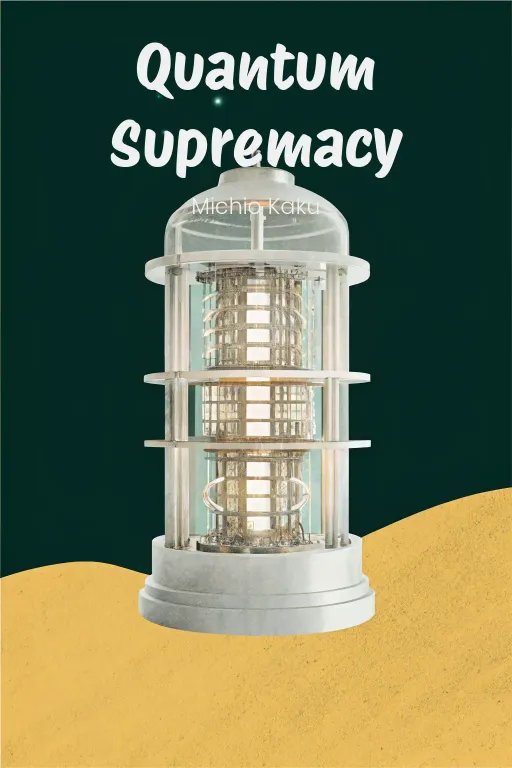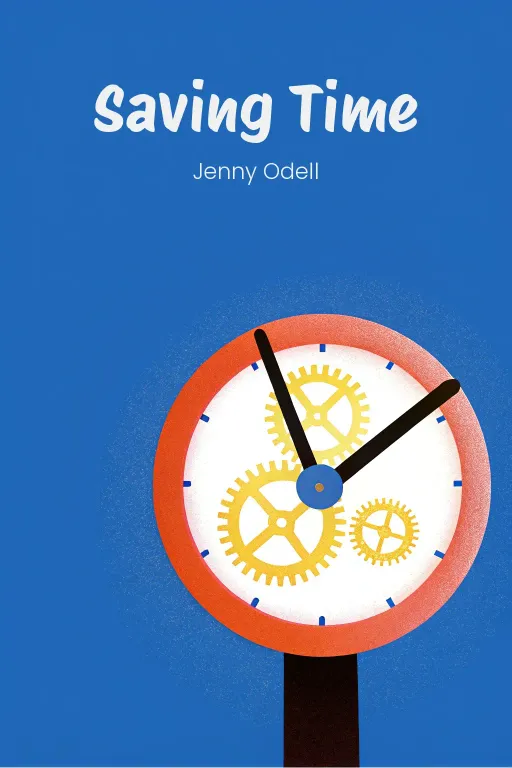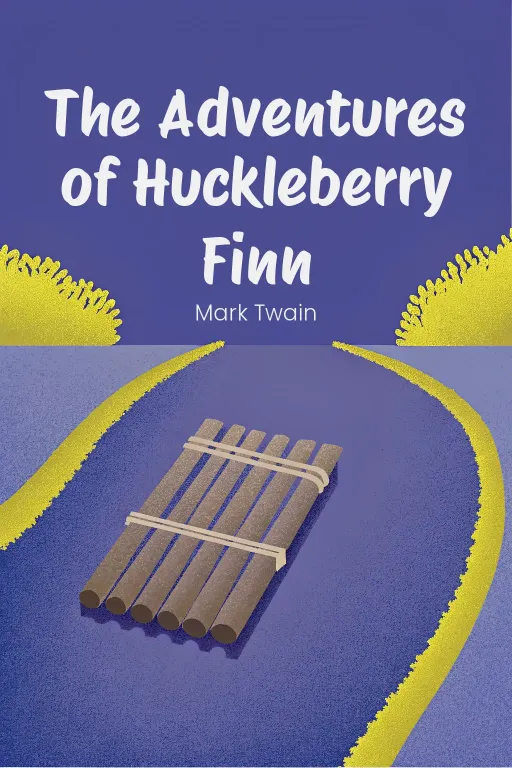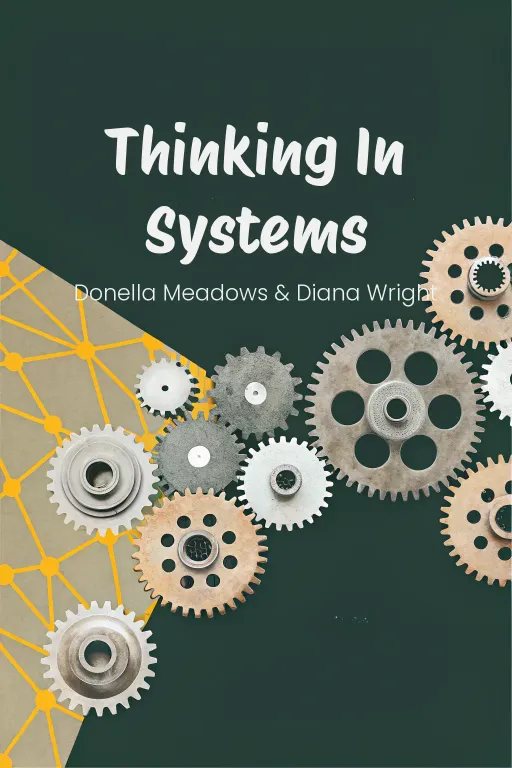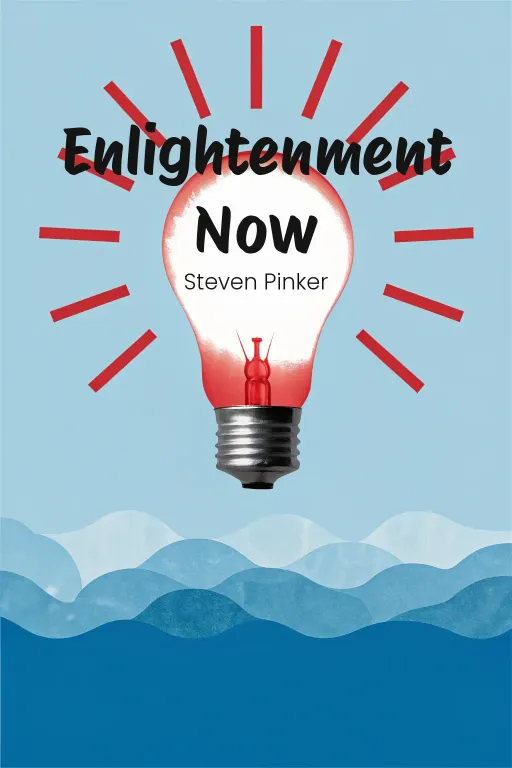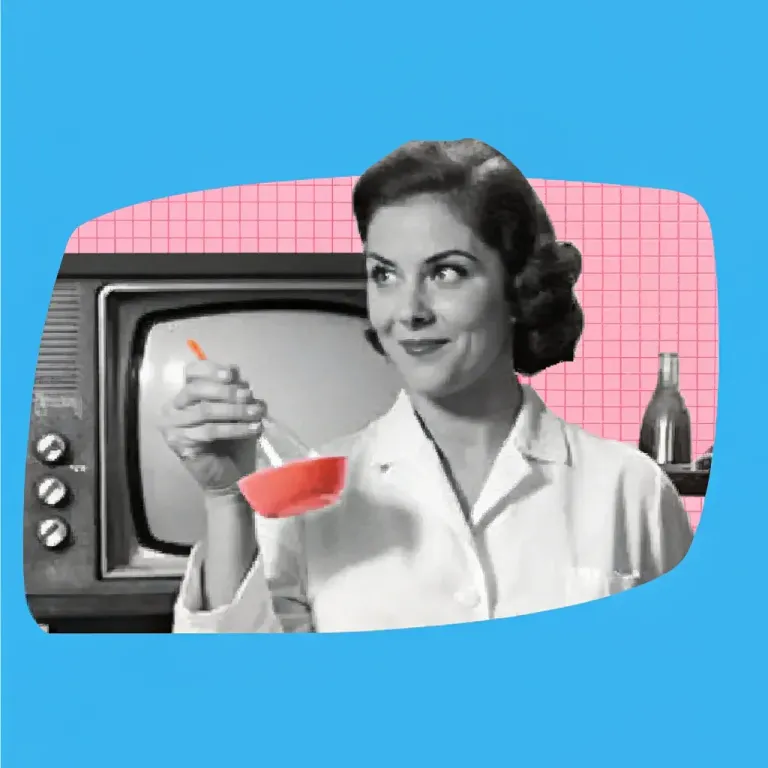
Defy the Odds: A Woman's Bold Chemistry
Podcast by Wired In with Josh and Drew
A Novel
Defy the Odds: A Woman's Bold Chemistry
Part 1
Josh: Hey everyone, welcome! Today we’re jumping into a story that’s equal parts heartwarming, thought-provoking, and yeah, a little rebellious. Imagine being a pioneering scientist, but back in the 1960s. Women were constantly underestimated and sidelined in the workplace back then. What would it take to actually not just survive, but truly thrive in that kind of environment? Drew: Thrive and shake things up, right? Think about this: A chemist who becomes a cooking show host, cleverly teaching science through recipes. That’s not just smart – it’s a subtle act of defiance. We’re talking about Lessons in Chemistry by Bonnie Garmus, a book that “really” doesn't hold back when it looks at ambition, resilience, and standing your ground when the world is trying to push you back. Josh: Exactly. Elizabeth Zott, the main character, she's not your typical heroine. She’s a brilliant chemist who's constantly fighting sexism, dealing with the loss of the love of her life, and raising a child on her own. All while society is trying to box her into this "domestic" role. But instead of giving in, she redefines everything, whether she's in the lab or hosting Supper at Six. Drew: So, we’re going to break this down into three main themes today. First off, there’s her fight against systemic sexism – what's the real price when a woman is told they need to make themselves smaller? Then, the emotional core of her life, from love to loss, and let's not forget a super insightful dog named Six-Thirty. And finally, maybe the best part, her career shift, turning the kitchen into a place for empowerment. Josh: Absolutely. It's thought-provoking, it’s touching, and yeah, sometimes it’s a bit of a punch to the gut. Elizabeth’s story “really” makes you think about how much has actually changed for women trying to succeed in fields that are dominated by men. Drew: Right. So, whether you’re looking for some inspiration, a new perspective, or just a reason to think of baking as a chemistry experiment, this is one for you. Let’s dive in.
Female Empowerment and Resilience
Part 2
Josh: Okay, so let's dive right into Elizabeth's initial struggles. I mean, her experience at Hastings Research Institute is just such a blatant example of the challenges women faced back in the '60s. Not only is her brilliance ignored, but her colleagues actively try to undermine her, even calling her "Luscious Lizzie." Honestly, that nickname just perfectly encapsulates everything that was wrong with sexism in those institutions at the time. Drew: It’s outrageous, right? Reducing someone's entire professional identity to just their looks. It's like the whole place was trying to turn her into a joke. But I keep wondering, Josh, what is it that keeps Elizabeth going through all of this? She's denied resources, recognition, even basic respect. Why doesn't she just walk away? Josh: I think because quitting would have been like admitting defeat, you know? Elizabeth is incredibly determined, maybe even stubborn. Take that scene in Calvin Evans' lab when she's searching for lab equipment. It's not just about the beakers, Drew; it's about fighting for her right to be taken seriously as a scientist. It's a great example of her whole struggle. She just refuses to believe she's less capable or deserving because she's a woman. And what's really interesting is Calvin's reaction – how he initially underestimates her but then becomes her biggest supporter. Drew: Calvin, yes – we have to talk about Calvin. He's pretty much the only person at Hastings who truly appreciates her mind. But doesn't that raise a difficult question? How much of Elizabeth's ability to survive at Hastings depends on the fact that she has this brilliant, respected man backing her up? Does Calvin's belief in her kind of validate her in a way the institution never would on its own? Josh: That's a “really” good point. But I think it's more complex than that. Calvin might help to open some doors, but Elizabeth walks through them on her own terms. The interesting tension in their relationship is how much Elizabeth values her independence versus how much Calvin simply wants to help her navigate a fundamentally unfair system. But even then, let's not forget how utterly awful that system was—from dismissing her pregnancy to eventually firing her from the institute. It's a harsh reminder of how women were treated as disposable. Drew: That whole pregnancy situation was particularly hard to watch. Here she is, doing groundbreaking research, and instead of supporting her, they punish her for becoming a mother. It's a pretty brutal message about how women were historically penalized for trying to balance a career with having a family. But that dismissal also puts her on a completely different path, doesn't it? Her transition from chemist to TV host is both unexpected and kind of revolutionary. Josh: Absolutely. “Supper at Six” might seem like a simple cooking show at first, but what Elizabeth does with it is incredible. Instead of just showing her audience how to cook, she's teaching them the science behind the cooking. The way she explains something like the Maillard reaction – it's captivating how she uses what's considered a "feminine" space as a platform for intellectual empowerment. It's almost like rebellion disguised as domesticity. Drew: Right, but here's what I'm wondering: Do you think Elizabeth ever fully embraces that role, or is it always a bit of a compromise? I mean, despite her brilliance, despite her chemistry background, she's still presenting it from a kitchen, on television. Does that setting diminish her accomplishments, or does it actually amplify them by subverting people's expectations? Josh: I’d say it's definitely the latter. Her cooking show is subversive because it plays into those expectations and then turns them on their head. By bringing science into the kitchen, she elevates something that society had dismissed as trivial and makes it intellectual. Remember that time she went off-script during a live episode? Oh! That’s one of my favorite scenes. She starts giving this impromptu speech, urging women to embrace their intellect and challenge the roles they’ve been given. Drew: Oh, the fallout from that must've been intense! I can just imagine housewives across America sitting in front of their TVs, half amazed and half shocked. Of course, it wasn't all positive feedback—there was definitely a lot of criticism too. But isn't that what real change looks like? It can be loud, messy, and controversial because it’s disrupting the established order. Josh: Exactly. Which leads us to that explosive confrontation with her boss, Lebensmal. Oh, Drew, that scene is just… wow. He represents every misogynistic gatekeeper she’s faced, and when she stands her ground with that chef’s knife, it's not just self-defense—it’s a symbolic act against decades of institutional oppression. That moment is when Elizabeth reclaims her power, completely and without apology. Drew: And Lebensmal's heart attack? The symbolism couldn't be any clearer! It's almost as if the systemic oppression he represents just couldn’t withstand Elizabeth's sheer force. But that moment isn’t just a turning point for her. It’s a rallying cry for everyone watching, everyone who's been rooting for her to succeed. Josh: Exactly. And that's why Elizabeth becomes more than just an individual; she becomes a symbol. Her TV audience sees their own struggles in her story. She shows women that intellect and ambition aren't things you need to hide—they're things to celebrate. Even her open atheism, though controversial at the time, reaffirms her commitment to living authentically. She's not just asking for acceptance; she's demanding respect. Drew: And doesn't that authenticity still resonate today? Her story reminds us how important it is to stand up for what we believe in, even when it's scary or isolating. Whether it's barging into a lab for beakers or turning dinner prep into a chemistry lesson, Elizabeth Zott shows us that resilience isn't just about surviving—it's about turning obstacles into opportunities for change.
Personal Relationships and Identity
Part 3
Josh: This whole fight for recognition and equality naturally spills over into her personal relationships, and honestly, Drew, that's where Elizabeth Zott's true character “really” shines through. From her unconventional love story with Calvin Evans, to her daughter Madeline, her neighbors, and even her dog, Six-Thirty–every relationship kind of becomes a piece of this puzzle that gives her strength, purpose, and yeah, defiance. Drew: Absolutely. And what's “really” striking about these relationships is that they don't just influence her, they actively challenge her. Look at Calvin, for example. Their connection is this rare blend of deep intellectual respect and genuine emotional intimacy. But it's not all smooth sailing, right? Let's rewind back to their first meeting – Elizabeth barging into his lab, totally outraged because she's being denied resources. Now Josh, that's a charged encounter, don't you think? Josh: Charged is definitely the word for it—it “really” shows Elizabeth’s unwavering determination. I mean, imagine: she's so fed up with the constant roadblocks that she storms into this prominent scientist's lab to demand supplies, not even knowing who he is. And Calvin? He makes that classic, casual misogynistic assumption that she's just a secretary. But instead of backing down, Elizabeth confronts him head-on. That initial misunderstanding “really” sets the stage for their whole dynamic: two equals who have to navigate these differences in privilege and perspective. Drew: Exactly, because Calvin, despite being brilliant, grew up in an orphanage. He knows what it's like to feel like an outsider, but in a completely different way than Elizabeth. What I find so amazing about their relationship is how it defies expectations. Calvin treats Elizabeth as his intellectual equal way before society was ready to accept that idea. But, this begs the question – do you think their relationship would've even worked if Calvin didn't have the influence and status that he did? Could Elizabeth have thrived in that kind of environment without his backing? Josh: Hmm, that's a tough one. Calvin definitely helps create a kind of shield around Elizabeth at Hastings. But I think it's less about his clout and more about their shared understanding. You see, Elizabeth isn’t responding to his status, but his respect. He recognizes her genius when no one else at Hastings does, which makes their partnership incredibly validating for her. That's a huge deal for a woman who’s constantly being undermined. But, even with Calvin's support, Elizabeth is still very protective of her independence. Remember their conversation about starting a family? Drew: Ah, you mean the "let's get a dog first" compromise? That’s so telling! Calvin, with the baggage of his own childhood, craves the stability of a family, while Elizabeth is “really” hesitant to give up her freedom. Eventually they meet in the middle with Six-Thirty, who is, arguably, one of the most interesting characters in their lives. The scene where Calvin suggests adopting a dog instead of having a child is surprisingly tender, and it “really” showcases how they balance each other's needs. Josh: Couldn't agree more. Six-Thirty becomes the embodiment of their compromise, and a reflection of Elizabeth's own rebellious nature. He's a dog who was dismissed for his perceived failures—sound familiar? But Elizabeth doesn't just take him in; she sees potential where others see flaws. The way she teaches Six-Thirty new words feels like she's grabbing control in a chaotic world. And then, tragedy strikes — Calvin dies. Drew: Okay, we're diving right in, aren't we? Let's just rip that band-aid off. Calvin's death—it's devastating, no doubt. But even more than that, it's the catalyst that pushes Elizabeth into new territory as a single mother. What's so impressive is the way she channels that grief into determination, especially when it comes to raising Madeline. Josh, let's discuss that mother-daughter relationship. It's definitely not your typical warm and fuzzy story, is it? Josh: Not even close, no. Elizabeth's approach to parenting is raw and honest. I mean, those brutally frank lunchbox notes she writes to Madeline--they're encouraging, sure, but also bracingly pragmatic. "Most people are awful"--not exactly a Disney sentiment, right? But Elizabeth's preparing her daughter for the world as it is, she's not sugarcoating anything. And yet, those notes are also deeply loving. They “really” show a mother who's fiercely dedicated to nurturing her daughter's mind, even if that means doing things differently. Drew: And Madeline herself – what a complex character! She's this brilliant, incredibly curious kid who clearly inherited Elizabeth's intellect, but she also grapples with some of those same feelings of isolation. Remember when she pretended she couldn't read just to fit in with the other kids? That “really” got to me. It's such a painful example of the pressure to conform, especially for someone so young. Josh: Exactly. Madeline's experience reflects the same tension that Elizabeth has faced her whole life: the choice between being true to yourself and being accepted. But that's where Harriet, the neighbor, comes in as this unsung hero. She gives Elizabeth a type of support that's based on shared experience. Harriet understands the societal expectations that are suffocating women, and she helps Elizabeth understand that she doesn't have to choose between being a chemist and being a mother. Drew: Harriet’s contribution is so subtle, yet so crucial. She is there to act as a bridge when Elizabeth feels isolated, also she represents something bigger: the strength of female solidarity. Then we have Six-Thirty again, who’s more than just a pet, he's a source of emotional stability. There's something profound in how Elizabeth relies on these connections—human and canine—to survive in an often hostile world. Josh: And that's the key theme here, you know: relationships as a form of resistance. Calvin challenges Elizabeth intellectually, Madeline inspires her to fight for a better future, Harriet reminds her that she's not alone, and Six-Thirty—well, he's proof that the most unexpected bonds can be the strongest. They're all Elizabeth's emotional anchors, helping her not only survive, but thrive on her own terms. Drew: Thrive, indeed. And these relationships, they don’t define her in that conventional sense, but they do something better—they strengthen her sense of self. Each one, in its own way, pushes her to embrace who she is while also defying the expectations of society. And if that's not revolutionary, what is?
Professional Reinvention and Legacy
Part 4
Josh: You know, as Elizabeth navigates these relationships, her professional reinvention really becomes a pivotal part of her legacy. It's just incredible how her shift from scientist to TV host redefines what it means for women to assert themselves. Especially in a world that constantly tries to box them in. Drew: Absolutely. And that reinvention is where it gets truly interesting. I mean, how often do you see a woman in the 1960s—even a fictional one—pivot from academia to the media, not for fame, but to teach chemistry on television? It's such a radical departure from what was expected of women then. So, let's really unpack that. Josh: Well, at its core, Elizabeth proves that reinvention isn't about abandoning who you are. It's about adapting your skills to have a wider impact. Think about Supper at Six. On the surface, it just seems like another daytime cooking show, right? But it’s actually a brilliant strategy. Elizabeth uses that platform to sneak science into America's kitchens. She strips away the idea of women just passively homemaking and instead presents it as an intellectual exercise, one where women hold the power. Drew: Right, but isn't there a little bit of a bittersweet element to that? I mean, here's a genius chemist—capable of “really” groundbreaking research—and yet, her big breakthrough comes in the form of a cooking show. On one hand, it feels like she's outsmarting the system, using its own smokescreen to educate women. But on the other hand, doesn't that limitation feel like a bit of a waste of her potential? Josh: I see what you mean. But I think it's more than that. It's not about her settling; it's about changing how society views knowledge and intelligence. By bringing science into the kitchen, Elizabeth democratizes it. Take the Maillard reaction she explains on air, for example. That's not just a culinary trick, that's chemistry. And she's telling women, "This doesn't just belong to men in labs; this belongs to you too." That's revolutionary in its own way, don't you think? Drew: Yeah, that's a good point. I guess I wonder how much of her message really resonated with her audience. She's using science to empower, sure, but if you were to ask her viewers, how many were tuning in for the chemistry lessons, and how many just wanted a better pot roast, you know? Was her message perhaps a little too subtle for that time? Josh: That's possible. But even if only a small percentage of her viewers saw themselves differently afterward, that's still change. Remember all the letters she gets from women? Her impact goes way beyond "better chicken stew." Elizabeth becomes this kind of beacon for women who are looking for agency in their own lives, starting right there in their kitchens. And don't forget that young girls like Madeline were watching, too. Imagine the message those young, impressionable minds were receiving as they watched a smart, confident woman commanding a national stage. Drew: And she wasn’t just commanding it – she was shaking it up. I mean, we can't overlook her candidness, especially that infamous live episode. Her rejection of societal norms, like openly declaring her atheism, wasn't just bold; it was practically incendiary for the time. Do you think that moment was intentional, or was Elizabeth just being authentically herself? Josh: I think it was a bit of both, really. She's not trying to intentionally provoke people, but authenticity is really important to her. That honesty is what ultimately makes her legacy so powerful. Sponsors might have hated it, but the letters of support show how much her audience needed someone to stand up and say what they couldn't. Women weren't just learning to cook in those kitchens; they were questioning their roles, their limitations—all because Elizabeth was encouraging them to think critically about who they were and who they wanted to be. Drew: Exactly. Elizabeth's kitchen isn't just a kitchen, it's a lab, a classroom, a podium for her quiet rebellion. And honestly, isn't it fitting that controversy, not compliance, becomes the catalyst for her broader legacy? The backlash she faces makes her work as much about defiance as it is about education. Josh: And that defiance is reflected in how she reclaims herself at every stage. Even when she's receiving death threats, she refuses to compromise herself or make her intelligence more palatable. It's that audacity that transforms her professional reinvention into something bigger: a call to action for women to redefine their own definition of success. Drew: What's fascinating is that her reinvention isn’t just personal—it “really” highlights how institutional systems can fail individual brilliance. When Hastings failed her, she didn’t just accept defeat. She carved her own path. That pivot from the academic ivory tower to the living rooms of America is, well, kind of poetic. Josh: It “really” is. And also, it's practical. Elizabeth shows that adaptability isn't a compromise—it's a strength. By sharing her intelligence with a wider audience, she challenges the idea that knowledge only belongs in labs or lecture halls. It’s an act of democratizing knowledge, proving that education doesn’t have to be formal to be transformative. Drew: And isn't it also somewhat ironic that by trading academia for TV, she ends up impacting more lives than she probably would have as a career chemist? I mean, her show becomes a platform not just for science, but for empowerment. It’s clever, it's subversive, and it's deeply intentional—an act of legacy-building through rebellion.
Conclusion
Part 5
Josh: Alright, so to bring it all together, Elizabeth Zott’s journey in “Lessons in Chemistry” is really a story of both resistance and reinvention, right? We’ve seen her fight against the sexism rampant in academia and the media, redefine relationships with respect and courage, and transform her career, turning her home kitchen into a revolutionary platform. She consistently defies societal expectations, creating opportunities not only for herself but also for many other women. Drew: Exactly, and what strikes me is that her resistance isn’t just some loud, angry outburst. It's very deliberate, deeply impactful, and well-thought-out. Whether she's challenging institutions, questioning gender roles, or turning a simple cooking show into a chemistry lesson, Elizabeth shows us that real rebellion doesn't have to be noisy to be effective. Sometimes, it’s about using something as simple as a spatula to carefully examine and challenge the norms that hold us back. Josh: Exactly! So, thinking about Elizabeth, the big question is: how do we keep her spirit alive today? How do we make knowledge accessible to everyone, challenge the rules that limit us, and create environments where intelligence can flourish, no matter who you are? Drew: I guess the answer might be in what Elizabeth showed her viewers: that genuine change doesn’t need to start with big, dramatic actions. Sometimes, it starts right where you are—whether that's in a lab, a kitchen, or even, you know, a conversation like we're having right now.
